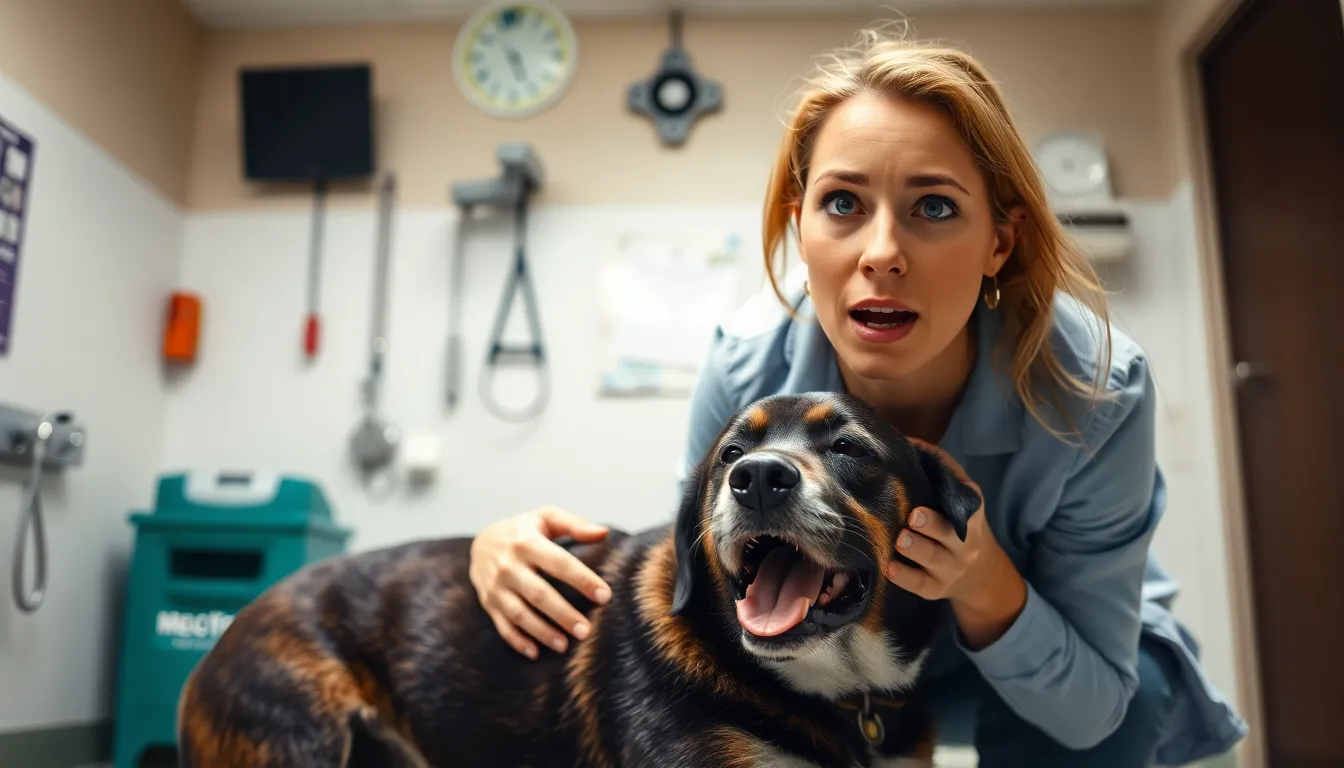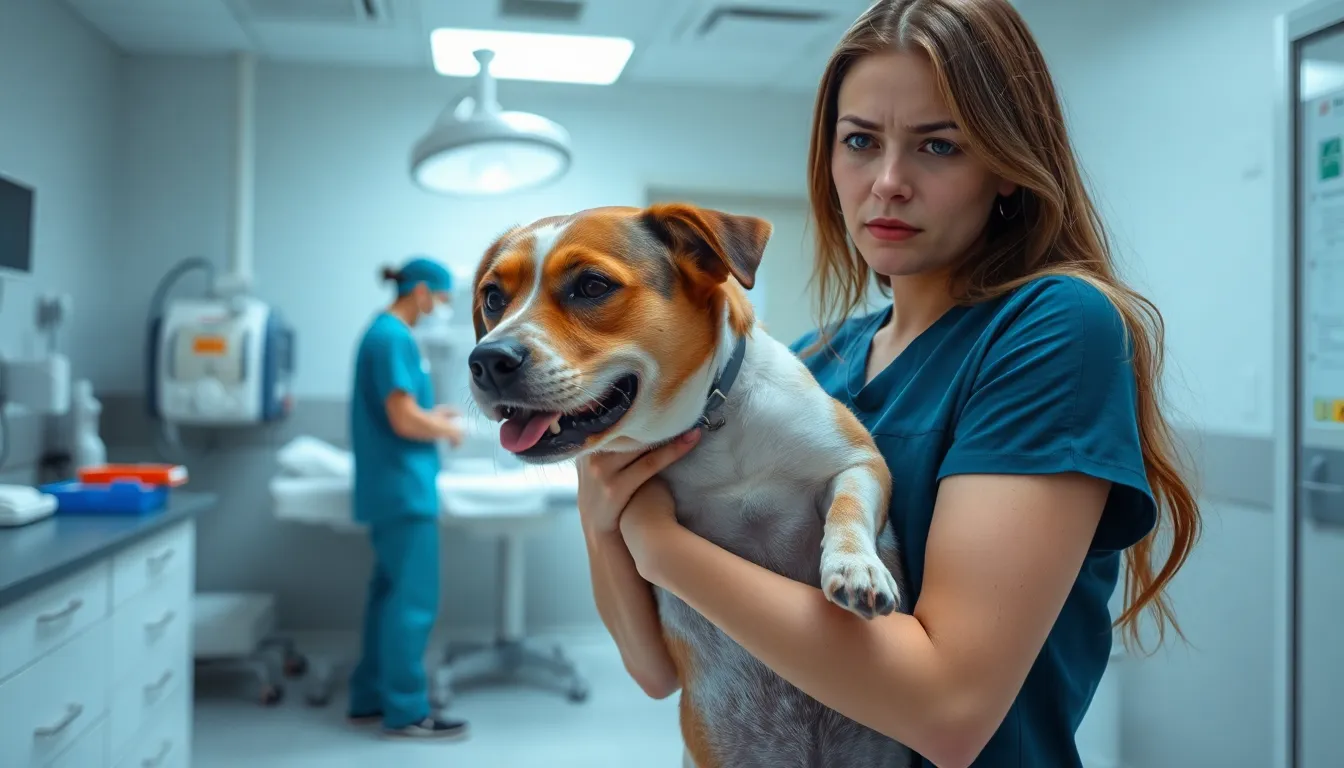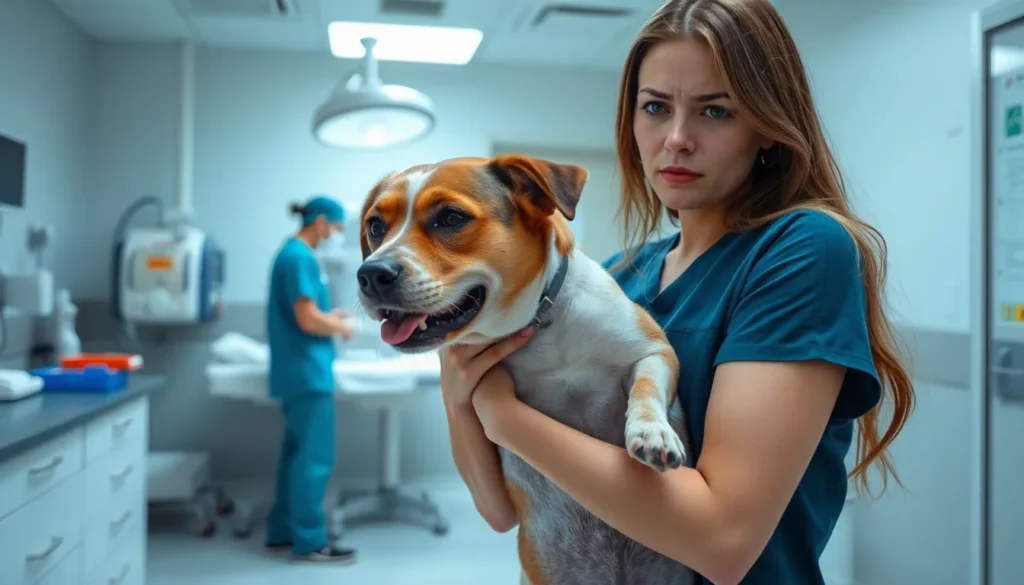When a beloved pet faces a sudden health crisis, time is of the essence. Emergency vet services play a crucial role in providing immediate care when every second counts. Whether it’s a severe injury, poisoning, or unexpected illness, knowing where to turn can make all the difference in your pet’s outcome.
Understanding the importance of emergency veterinary care is essential for every pet owner. These specialized clinics are equipped to handle urgent situations, offering advanced treatments and expertise. With trained professionals available around the clock, pet parents can rest assured that help is just a call away, ensuring their furry friends receive the best possible care in dire moments.
Table of Contents
ToggleWhat Is An Emergency Vet?
An emergency vet provides immediate medical care for pets facing urgent health issues. These specialized veterinary clinics operate 24/7, ensuring that pets receive timely assistance during crises such as severe bleeding, difficulty breathing, or sudden seizures.
Emergency veterinarians are trained to handle critical situations, having expertise in various medical fields. Staff typically includes veterinarians, technicians, and support personnel skilled in emergency procedures. Facilities are equipped with advanced diagnostic tools, surgical instruments, and life-support equipment, allowing for comprehensive treatment.
Common emergencies treated by these clinics include:
- Trauma: Injuries from accidents or fights requiring immediate attention.
- Poisoning: Quick intervention necessary for ingestion of toxic substances.
- Infections: Severe cases that need urgent care to prevent escalation.
- Respiratory Distress: Conditions that hinder normal breathing.
- Severe Vomiting or Diarrhea: Symptoms that can lead to dehydration and other complications.
Pet owners should know their nearest emergency vet location and have their contact information readily accessible. Awareness of local clinics can expedite care when every moment counts.
When To Visit An Emergency Vet

Recognizing when to visit an emergency vet is crucial for ensuring a pet’s well-being. Immediate attention can save lives in critical situations.
Signs Of A Pet Emergency
- Difficulty breathing: Signs include excessive panting, wheezing, or open-mouth breathing.
- Seizures: Any seizure activity lasting longer than a few minutes requires prompt veterinary attention.
- Persistent vomiting or diarrhea: Continuous episodes can lead to dehydration and serious health risks.
- Injuries: Visible wounds, severe lacerations, or broken bones indicate urgent care is necessary.
- Unresponsiveness: If a pet shows signs of lethargy or unresponsiveness, immediate evaluation is crucial.
- Bloating: Swelling of the abdomen can signal a life-threatening condition such as gastric torsion.
Common Scenarios Requiring Immediate Care
- Accidents: Car collisions or falls can lead to trauma requiring immediate diagnostics and treatment.
- Poisoning: Ingesting toxic substances, including certain plants, human food, or chemicals, needs urgent intervention.
- Heatstroke: High body temperature from prolonged exposure to heat can cause organ failure; quick cooling is important.
- Allergic reactions: Severe swelling, difficulty breathing, or hives require rapid medical attention.
- Urinary obstruction: Difficulty urinating may suggest a blockage, posing serious health risks, particularly in male pets.
- Severe bleeding: Profuse bleeding from any body part requires immediate veterinary care to control the loss.
What To Expect At An Emergency Vet
Emergency vet visits often involve rapid assessment and treatment of a pet’s condition. Understanding the processes and available options can help pet owners prepare for these critical situations.
Examination Processes
Initial examinations at an emergency vet focus on assessing the pet’s immediate health status. Veterinarians conduct a physical assessment to identify visible injuries, abnormal vital signs, or distress signals. They often utilize diagnostic tools such as X-rays, ultrasounds, and blood tests to evaluate internal conditions. Pet owners should expect staff to ask detailed questions about symptoms, medical history, and any recent events that may have contributed to the emergency. This thorough examination helps determine the urgency and type of treatment required.
Treatment Options Available
Emergency vets provide a range of treatment options tailored to the pet’s condition. Common treatments include:
- Stabilization: Vets may administer fluids or medications to stabilize pets in critical condition.
- Surgery: Surgical intervention may be necessary for injuries or complications requiring immediate action.
- Medication: Prescriptions can alleviate pain, control infections, or manage symptoms effectively.
- Monitoring: Continuous observation ensures that the pet’s condition is improving and helps detect any changes.
Emergency vets utilize advanced equipment and techniques to provide the best possible care in urgent situations. Pet owners should remain informed about the treatment plan and any necessary follow-up care to ensure a successful recovery.
How To Choose The Right Emergency Vet
Choosing the right emergency vet is essential for ensuring the best care for pets in urgent situations. Various factors and questions can guide pet owners in making an informed decision.
Factors To Consider
- Location: Select a clinic close to home for quicker access in emergencies.
- Availability: Ensure the clinic operates 24/7 to provide help anytime.
- Staff Qualifications: Verify that veterinarians and staff have advanced training in emergency care.
- Facility Resources: Look for clinics equipped with diagnostic tools, surgical suites, and life-support equipment for comprehensive treatment.
- Specialties: Consider whether the clinic has specialists for specific issues, such as cardiology or oncology.
- Reputation: Read reviews and ask for recommendations to gauge the clinic’s quality of care and customer service.
- Cost Structure: Inquire about fees, payment options, and insurance acceptance to manage finances during emergencies.
Questions To Ask
- What types of emergencies do you handle? Understanding the clinic’s capabilities helps evaluate if it meets specific needs.
- How long is the typical wait time? Knowing this allows for planning during critical situations.
- What diagnostic tools are available on-site? Confirming the availability of necessary equipment for accurate assessments is crucial.
- How do you communicate treatment plans? Clarifying how treatment decisions are conveyed ensures pet owners stay informed.
- Are there specialists available for specific cases? Knowing if specialists are on-hand can improve treatment options.
- What are the payment options? Understanding costs upfront helps avoid financial stress during emergencies.
By carefully considering these factors and asking targeted questions, pet owners can select the right emergency vet for their pets’ urgent health needs.
Emergency veterinary services play a vital role in ensuring pets receive the urgent care they need during critical moments. Knowing how to recognize emergencies and where to seek help can make all the difference in a pet’s outcome.
Pet owners should prioritize having emergency contact information readily available and familiarize themselves with the nearest clinics. By understanding what to expect during an emergency vet visit and how to choose the right facility, pet owners can navigate these stressful situations with confidence.
Being proactive and informed can lead to better health outcomes for beloved pets when every second counts.








